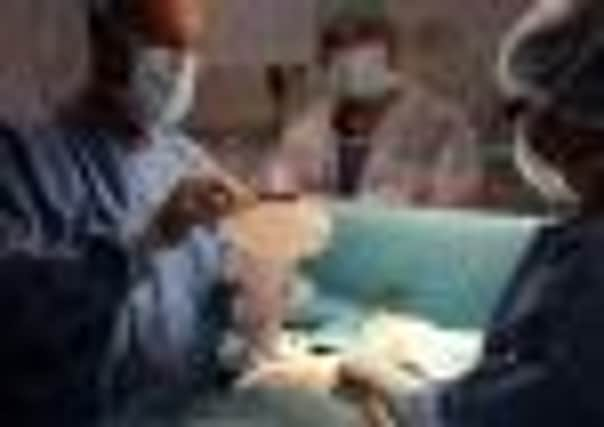Experts call for implants to be removed as fears grow over ruptures


Professor Mike Dixon made the call after a member of the government panel investigating the issue said all women with faulty implants should have them removed given the “uncertainty and lack of knowledge” about the extent
of the problems. The UK inquiry began after the French government said it would pay for about 30,000 French women to have the implants removed, after eight cases of cancer were linked to the implants. About 50,000 Britons are though to have received the implants. But Prof Dixon, who is professor of surgery and consultant surgeon and clinical director of the Breakthrough Research Unit at Edinburgh’s Western General Hospital, also said there was currently no need for women with PIPs to have them automatically removed if there was nothing wrong with them.
Advertisement
Hide AdAdvertisement
Hide AdThe Medicines and Healthcare products Regulatory Agency (MHRA) originally said the risk of rupture was only 1 per cent but two days ago updated that figure to 7 per cent after cosmetic surgery chain Transform admitted the risk was higher than previously believed.


Prof Dixon said yesterday: “My advice to women in Scotland is if you think you have a PIP implant from a private surgeon then contact your consultant.
“There will be paperwork stating what sort of implant was used. Obviously if it has leaked then you will need to have it removed and replaced. It is obvious if an implant has leaked – it goes squidgy and changes shape.
“However, we will have to wait until the findings of the review are out before anyone can say whether they need to be removed even if there are no problems.”
Prof Dixon added that women who have received breast implants on the NHS in the Lothians should “sleep easy” because they had never used PIPs.
He said: “It’s a matter of cost. We have never used PIPs. They are cheaper but the NHS has always used some of the best quality implants available.”
Spire Murrayfield, a private Scottish hospitaal which offers breast implants, said patients who have had PIPs should contact their surgeon.
A spokeswoman said there would be no charge for the phone call and if the surgeon felt a patient needed a consultation or a scan, they would waive the hospital fee, which makes up part of the consultation cost.
Advertisement
Hide AdAdvertisement
Hide AdHowever, she added: “It is up to individual consultants if they will charge for a consultation.”
Tim Goodacre, president of the British Association of Plastic, Reconstructive and Aesthetic Surgeons (Bapras), said yesterday: “Even with a very low rupture rate, we would want to see most implants removed on a staged basis.
“Certainly this is a very much higher rupture rate than we would consider acceptable at all. Good implants put in by reputable people really have an extraordinarily low failure rate so this is quite out of the ordinary.”
Mr Goodacre stressed that there was “no immediate cause for concern” as there was no cancer risk and no evidence of “major health detriment”.
But he added: “Given the fact that there is a degree of uncertainty and lack of knowledge, we really are recommending that all implants do come out.”
The French authorities shut down PIP last year after the company was found to be using cheaper industrial silicone. Paris has since recommended that women have the prosthetics removed because of fears over rupture. In the UK, the MHRA has said removal is not necessary. But UK Health Secretary Andrew Lansley launched a review of the risks from faulty breast implants after receiving new evidence from Transform.
NHS medical director Professor Sir Bruce Keogh is in charge of the review.
The MHRA will also be conducting an audit of evidence to resolve concerns about the “content and quality of the data that cosmetic surgery providers are sharing with the regulator”.
Advertisement
Hide AdAdvertisement
Hide AdUK shadow health secretary Andy Burnham urged Mr Lansley to “take a much clearer lead” to address women’s “great anxiety” about the implants.
“Mixed messages from the department have not helped and families affected are looking for a stronger response from the government,” he said.
A Scottish Government spokesperson said: “It is right that the data is thoroughly reviewed in light of new information coming to light. We remain in close touch with the MHRA and Department of Health.”